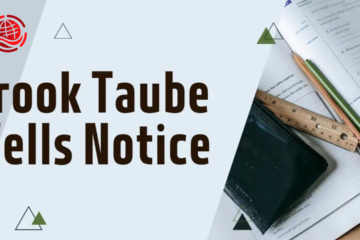In narrative-focused TV shows, confrontations between characters are pivotal, often echoing deeper social, ethical, and personal conflicts. The intense showdown between Emma and Principal Figgins is a prime example, engaging viewers while sparking debates on power, morality, and individual beliefs.
The Catalyst of Conflict
Emma’s dispute with Principal Figgins embodies a struggle between modern ideals and conventional administrative strictness. Emma is portrayed as empathetic and innovative and conflicts with Principal Figgins, who represents traditionalism and bureaucratic stagnation. Their disagreement arises from an event or policy shift that Emma views as harmful to the student’s well-being or the integrity of the educational environment she values.
This conflict transcends disagreement, highlighting a deeper global battle prevalent in educational systems. It reflects the ongoing debates surrounding educational policies, student rights, and the role of educators in shaping a conducive learning environment. Emma’s argument with Principal Figgins transcends personal grievances, symbolizing the broader contestations between innovation and conservatism in educational leadership.
The Dynamics of Power and Influence
The confrontation between Emma and Principal Figgins is pivotal in examining power structures and influence in educational settings. In his authoritative role, Principal Figgins significantly influences policy and decision-making, impacting teachers and students profoundly. Emma’s decision to confront him is courageous on a personal level and an act of defiance against the entrenched power hierarchy.
This confrontation raises essential questions about how teachers and other stakeholders can voice dissent within educational settings.
This scenario underscores the importance of establishing constructive feedback and dialogue channels to make decision-making transparent and participatory in educational settings. Emma’s confrontation with Principal Figgins critically examines power dynamics and underscores the value of advocacy in challenging established systems.
The Role of Ethics and Morality
Emma’s dispute with Principal Figgins delves into ethical and moral dilemmas. Driven by a robust ethical framework that places student welfare and growth at the forefront, Emma feels compelled to challenge Principal Figgins, questioning any policies or decisions that might undermine these fundamental principles.
This narrative element encourages audiences to contemplate the ethical obligations of teachers and school leaders. It sparks a conversation about the moral foundations of educational policies and the ethical principles that ought to steer the conduct of individuals in authoritative roles within academic institutions.
Emma’s confrontation with Principal Figgins serves as a poignant reminder of the ethical dilemmas that permeate the educational system, necessitating a balance between administrative objectives and moral obligations towards students.
The Impact and Outcomes
Emma’s clash with Principal Figgins has more comprehensive implications than their interaction, influencing the school’s atmosphere, policy direction, and the more significant education sector. This dispute could drive substantial changes within the institution, igniting discussions on teaching methodologies and possibly triggering broader educational reforms.
On a more personal level, Emma’s stand may inspire other educators and students to voice their concerns and advocate for change, highlighting the power of individual action in effecting systemic transformation.
Furthermore, this narrative arc is a compelling case study in conflict resolution and negotiation within educational settings. It provides:
- Insights into the challenges and opportunities of advocating for change within hierarchical institutions.
- I am offering lessons on leadership.
- Resilience.
- The art of persuasion.
Navigating Bureaucratic Hurdles
Emma’s clash with Principal Figgins underscores the tension between personal beliefs and established institutional practices, shedding light on the complex endeavour of overcoming bureaucratic obstacles in education.
This situation represents educators’ broader difficulties while introducing forward-thinking changes in schools. Navigating the bureaucratic landscape of educational organizations typically requires a careful equilibrium between compliance with existing rules and the pursuit of innovation. Emma’s navigation through this intricate network of policies and procedures exemplifies the determination and tenacity needed to champion significant reform.
Her efforts underscore the importance of understanding and engaging with the bureaucratic processes to effect change from within while pointing to the potential for frustration and resistance that educators might encounter.
The Psychological Impact on Educators
Delving into Emma’s emotional and psychological state during her standoff with Principal Figgins opens up a discussion on the toll such conflicts can take on educators. Confronting a superior on issues of principle can be a daunting and often lonely challenge, fraught with stress and isolation.
Emma’s situation reflects the broader emotional landscape that educators navigate when they challenge the status quo or advocate for their students. This confrontation can lead to feelings of doubt, anxiety, and professional vulnerability.
However, Emma’s story also highlights the potential for such challenges to foster resilience, personal growth, and a more profound commitment to one’s values and mission as an educator. The psychological journey of educators in these situations underscores the need for supportive communities and resources that can offer guidance and reassurance.
Student Empowerment and Advocacy
A critical yet frequently underestimated dimension of Emma’s dispute with Principal Figgins is its influence on promoting student empowerment and advocacy. Emma’s actions demonstrate to students the power of standing up for one’s beliefs and the importance of advocacy within educational settings. This situation is a profound example of civic involvement and individual accountability, demonstrating that students can influence their academic surroundings.
This conflict catalyzes student engagement in their learning, nurturing a feeling of autonomy and investment. Observing Emma’s stance teaches students critical insights into the power of constructive disagreement, the value of conversation in addressing disagreements, and the impact of personal initiative on broader transformation.
The Ripple Effect on Educational Policy
Emma’s clash with Principal Figgins has far-reaching implications for educational policy, underscoring how individual disputes can trigger broader discourse on educational methods and guidelines.
Her bold stance against prevailing norms could motivate fellow educators, administrators, and policy-makers to reassess current policies and explore innovative strategies that resonate with modern educational demands and principles.
This scenario exemplifies how individual actions can catalyze systemic change, leading to a rethinking of policies that affect student welfare, teaching methodologies, and the overall educational climate. Emma’s argument with Principal Figgins thus catalyzes change, demonstrating the power of individual conviction to influence the broader educational landscape.
Conclusion
Emma’s argument with Principal Figgins is more than just a plot point in a television series; it is a microcosm of educational systems’ broader challenges. It underscores the importance of dialogue, ethics, and advocacy in shaping educational environments conducive to learning and growth.
By examining the nuances of this confrontation, viewers are invited to reflect on the complexities of educational leadership and educators’ vital role in championing students’ rights and well-being.
This article aims to engage a broader audience in these critical discussions by analyzing this narrative through the lenses of on-page and off-page SEO strategies. By optimizing for visibility, it seeks to amplify the conversation around educational reform, ethics, and the empowerment of educators and students alike.
Emma’s defiance of Principal Figgins transcends personal bravery; it’s an appeal to every participant in the education sector to champion policies and practices embodying the utmost in ethics, fairness, and quality.
Read Also: Discord in the Halls of Academia: Emma Argues with Principal Figgins.



